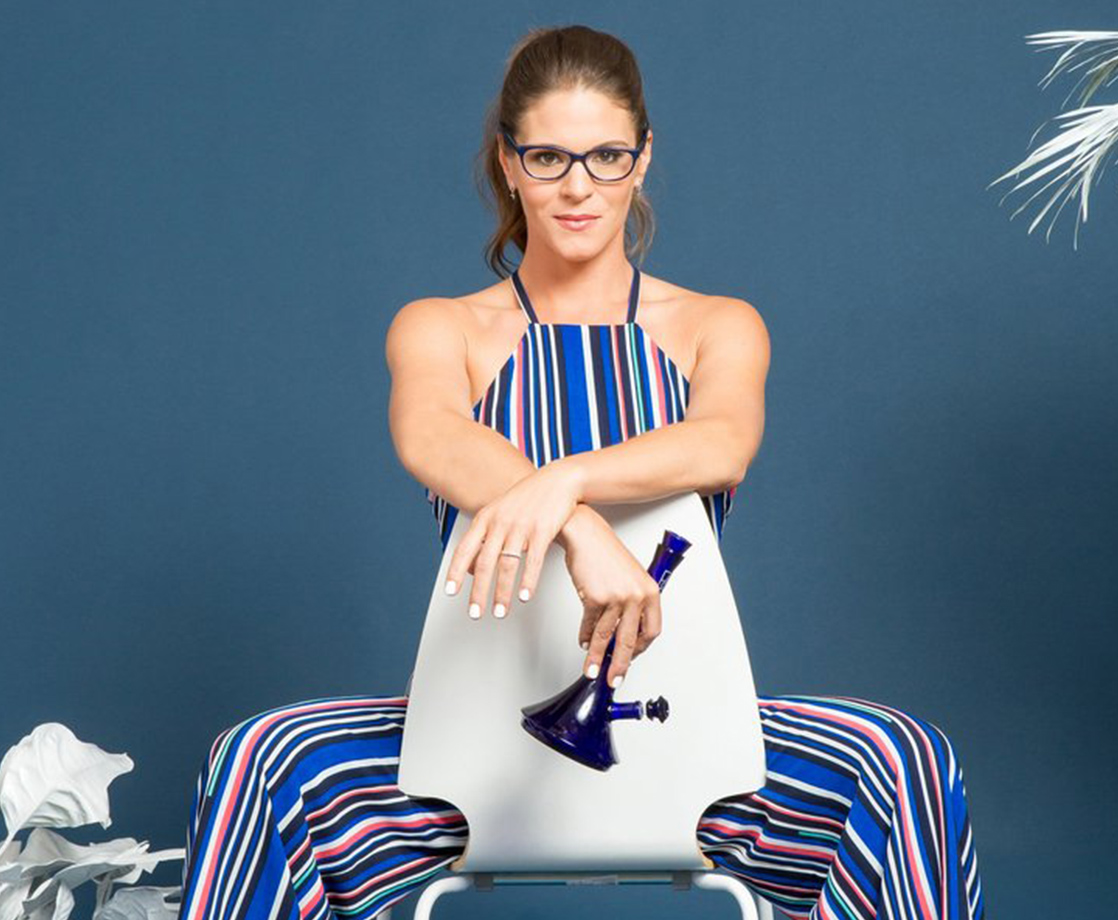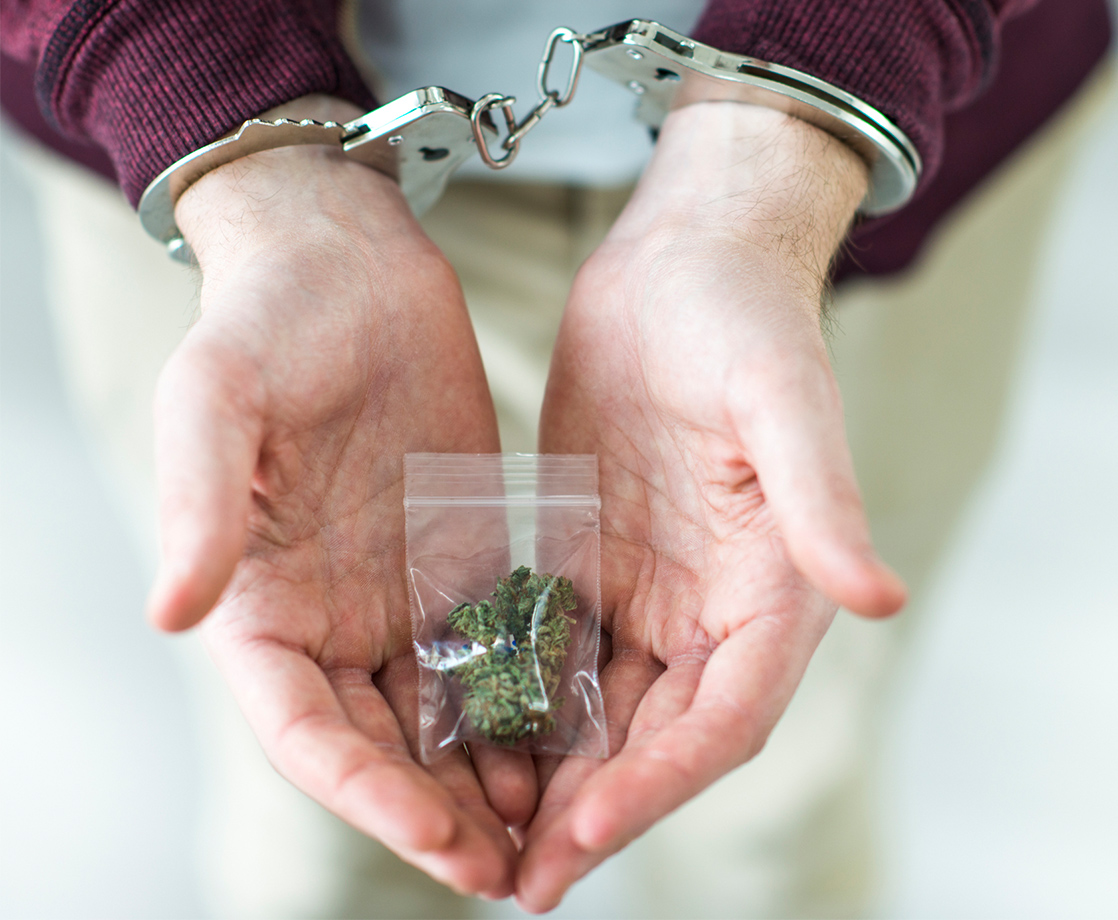Image via
Cops in Alabama and many other conservative states are arresting thousands of women for using cannabis or other drugs while they are pregnant.
In one notable case, 23-year-old Ashley Banks was locked behind bars for three months, with no possibility of bail or even a trial, for possessing weed while she was pregnant. Banks was arrested in Alabama this May after cops discovered a small amount of weed and an unlicensed pistol in her car during a routine traffic stop. The young mother admitted to getting high on the day that she discovered was pregnant, and this unfortunate admission allowed cops to charge her with “chemical endangerment of a child.”
In 2006, Alabama passed a chemical endangerment law that makes it a felony to expose a child to a “chemically toxic environment.” These laws were generally intended to increase criminal charges against parents who operate meth labs in the same home where their children live. Prosecutors and cops have increasingly been twisting the intent of these laws, though, by deciding that a woman’s body can also qualify as a chemically toxic environment.
Normally, an Alabaman caught with a small amount of weed and a gun would be able to get out on bail with little effort. The state’s chemical endangerment law forces any pregnant person caught with drugs to either remain in prison or attend a court-ordered rehab program, however. Banks made two separate attempts to enter rehab, but counselors refused to accept her because she was an occasional cannabis user, not an actual drug addict.
The court ultimately denied Banks’ bail request on the grounds that she could endanger her fetus by smoking weed again. While imprisoned, the young mother experienced serious complications to her pregnancy, putting her child’s life at risk. But now that Banks was behind bars, the justice system’s concern for the unborn child suddenly evaporated. Despite a serious risk of miscarriage, the state has forced the young mother to sleep on the floor of an overcrowded prison cell for the last three months.
Prosecutors are basing these criminal charges on the “fact” that prenatal cannabis use is harmful to unborn children, but clinical researchers have yet to conclusively determine whether or not this is actually true. Some studies have suggested that cannabis could increase rates of premature birth, but other studies have found no link between prenatal pot use and negative health outcomes. But while the link between cannabis and pregnancy is still being investigated, the risks of being incarcerated while pregnant are well-understood.
“The stress and conditions in jail and prisons, including lack of consistent access to standard prenatal care and mental health care, poor diets, poor sanitation, infestations with bugs and vermin, poor ventilation, tension, noise, lack of privacy, lack of family and community contact, can be detrimental to physical and mental health which can result in poor pregnancy outcomes for both the mother and the baby,” said Dr. Carolyn Sufrin, OB/GYN at Johns Hopkins University School of Medicine, to Alabama.com.
These draconian endangerment laws apply to all drugs, not just weed. Last year, seven armed cops charged another Alabama woman with a felony for simply filling a prescription that her doctor wrote for her. These arrests are occurring all across the state, but prosecutors in Etowah County, where Banks was arrested, seem particularly obsessed with using these laws to criminalize pregnancy. According to the National Advocates for Pregnant Women (NAPW), the county has imprisoned over 150 women on chemical endangerment cases since 2010.
This tragedy is not unique to Alabama. Twenty-two other states have also passed chemical endangerment laws, and prosecutors are turning them against pregnant people even in relatively liberal states like California. From 1973, when the Supreme Court issued the historic Roe v. Wade ruling, until 2005, US prosecutors only filed 413 criminal cases involving pregnancy and drugs. Between 2006 and 2020, that figure more than tripled, exceeding 1,300 cases. And now that Roe has been overturned, that number could grow even higher.
“We know that we’re going to see more examples of pregnant people being criminalized for behavior that may be [seen as] justified for the general public, like using substances,” said NAPW research and program associate Afsha Malik to The Nation. “[Other] cases that we’ve seen are going to accelerate, like [investigations for] falling down the stairs, having a home birth, not seeking prenatal care, having HIV, having a self-induced abortion, and experiencing a pregnancy loss.”











